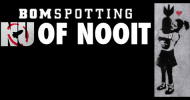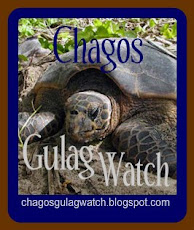
Waar hebben we het aan verdiend - op 21 augustus aanstaande wordt er een als wetenschappelijk bedoelde conferentie over Chagos in Amsterdam gehouden:
With the exception of French and British plantation owners, the initial settlers of the Chagos islands originated from the African continent and Madagascar. They arrived in the archipelago during the eighteenth century as slaves to perform forced labour on private copra plantations. After the abolition of slavery (1835), these ex-slaves continued working for their former masters. A later wave of indentured labourers arrived from India to meet labour shortages.
Their eviction resulted from secret negotiations between the American and British governments, when Chagos formed part of British colonial Mauritius. The British, whose strategic hegemony in the Indian Ocean was on the wane, agreed to lease Diego Garcia (the largest of the Chagos islands) to the Americans as a military base. When the Mauritians came to negotiate their independence in 1965, the British demanded surrender of the Chagos islands territory in exchange for a three million pound indemnity. This transaction allowed the British to lease Chagos to the U.S., and triggered the forced clearance of the entire population of approximately 2.000 people, plantation owners and workers alike, to the Seychelles (also a British colony at the time) and Mauritius.
Approximately 5.000 Chagossians currently dwell in the Seychelles and Mauritius, while several hundred have moved on to the UK. They occupy the lowest rung of these societies, where their lot is one of impoverishment, discrimination, high unemployment, degrading housing conditions, ill health and educational difficulties. The Chagossians blame la misère - their misery - on being déraciné, literally pulled up from their roots. They nurture the memory of a recently lost utopia, where food is abundant, with free housing, education and health care, and where a sense of community prevails.
The story of a group of displaced exiles locked into a perpetual holding pattern, and dreaming of their homeland is far from unique. There is something, however, casual and ruthless about the Chagossian plight that invites interest. No uprising, no battles, and no conflict preceded their turn of fate. They were essentially dealt away at the global poker table. Having lost their land, their identity was denied to them a posteriori. No substantial compensation was offered, and no recognition of the Chagossians as a people has ever followed. During lawsuits seeking financial compensation and a right of return to Chagos, the British and American governments continue to insist that the people living in Chagos were merely copra workers whose contracts were terminated for the simple reason that their services were no longer required. How, existentially, do they react to this blanket denial of their collective existence?
The conference is composed of four sessions: Session 1: Historical aspects of the Chagossians’ eviction Session 2: Living in Exile Session 3: The Legal Struggle Session 4: Experience, Memory, Identity This is the first academic conference in the Netherlands on the Chagossians. It is our intention to publish the conference papers.
Conference organizer: Dr Sandra J.T.M. Evers
Associate Professor & Senior Researcher
Department of Social and Cultural Anthropology
Faculty of Social Sciences
VU University Amsterdam
De Boelelaan 1081
1081 HV Amsterdam



Geen opmerkingen:
Een reactie posten